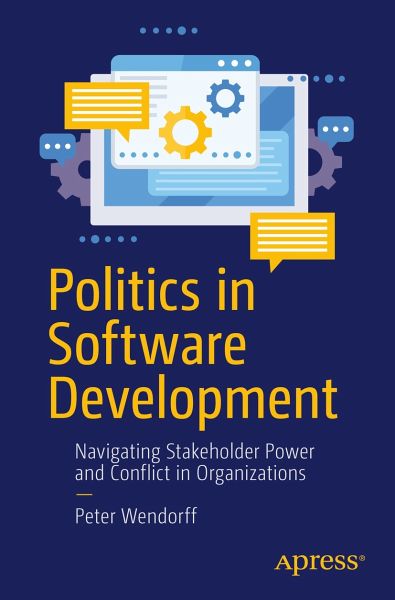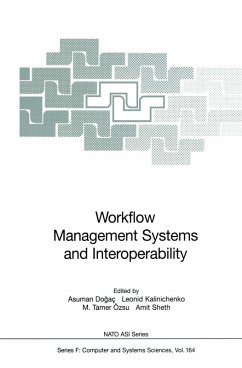
Politics in Software Development (eBook, PDF)
Navigating Stakeholder Power and Conflict in Organizations
Versandkostenfrei!
Sofort per Download lieferbar
30,95 €
inkl. MwSt.
Weitere Ausgaben:

PAYBACK Punkte
15 °P sammeln!
Equip yourself to navigate organizational politics in the world of software development. This book will help you understand the power dynamics at work between competing stakeholders with conflicting goals in projects and organizations.Politics in Software Development consists of three main parts. Author Peter Wendorff begins by defining key concepts in organizational politics. He then moves on to software development processes and investigates how their design reflects stakeholder interests. In the final part, he highlights the role of political skill in software development and provides an ov...
Equip yourself to navigate organizational politics in the world of software development. This book will help you understand the power dynamics at work between competing stakeholders with conflicting goals in projects and organizations.
Politics in Software Development consists of three main parts. Author Peter Wendorff begins by defining key concepts in organizational politics. He then moves on to software development processes and investigates how their design reflects stakeholder interests. In the final part, he highlights the role of political skill in software development and provides an overview of tactics that stakeholders frequently use.
There is widespread competition within organizations for rewards, recognition, status, and power. It gives rise to political behavior of stakeholders, which is generally seen as a problem. This negative view of organizational politics tends to overlook its positive functions. For example, it can alsobe thought of as an arena where stakeholders with conflicting goals can argue, persuade, negotiate, bargain, and cooperate to address conflicts.
Political conflict resolution regularly happens in organizations in an entirely civilized manner. It helps find agreements that reconcile differences in a constructive way, and it is needed because stakeholder conflicts are simply a natural aspect of organizations. While there is much literature about organizational politics, very few authors consider the specifics of software development. This book addresses both subjects and is written for an audience interested in a political perspective on software development.
What You'll Learn
Who This Book Is For
Project managers, lead developers, team leaders, team coaches, product owners, business analysts, developers, and other software professionals. This book is also suitable for students in software engineering.
Politics in Software Development consists of three main parts. Author Peter Wendorff begins by defining key concepts in organizational politics. He then moves on to software development processes and investigates how their design reflects stakeholder interests. In the final part, he highlights the role of political skill in software development and provides an overview of tactics that stakeholders frequently use.
There is widespread competition within organizations for rewards, recognition, status, and power. It gives rise to political behavior of stakeholders, which is generally seen as a problem. This negative view of organizational politics tends to overlook its positive functions. For example, it can alsobe thought of as an arena where stakeholders with conflicting goals can argue, persuade, negotiate, bargain, and cooperate to address conflicts.
Political conflict resolution regularly happens in organizations in an entirely civilized manner. It helps find agreements that reconcile differences in a constructive way, and it is needed because stakeholder conflicts are simply a natural aspect of organizations. While there is much literature about organizational politics, very few authors consider the specifics of software development. This book addresses both subjects and is written for an audience interested in a political perspective on software development.
What You'll Learn
- Recognize and understand political activities in organizations
- Understand what software processes have to do with stakeholder power and interests
- Acquire fundamental political skills for dealing with politics in software development
Who This Book Is For
Project managers, lead developers, team leaders, team coaches, product owners, business analysts, developers, and other software professionals. This book is also suitable for students in software engineering.
Dieser Download kann aus rechtlichen Gründen nur mit Rechnungsadresse in A, B, BG, CY, CZ, D, DK, EW, E, FIN, F, GR, HR, H, IRL, I, LT, L, LR, M, NL, PL, P, R, S, SLO, SK ausgeliefert werden.












